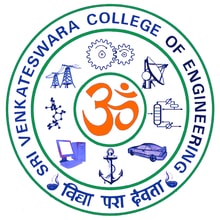Profile
About the Department
 The Department of ECE was established during the academic year 1985-86 with an initial students’ intake of 60. Later, it was increased to 120 during the academic year 2000-01 and subsequently to the sanctioned intake of 180 during the academic year 2012-13. The department is NBA accredited since April 2002 and thereafter continuously we have obtained accreditation for our UG program and it is valid up to 30th June 2022. Our department has leading-edge infrastructure facilities including the latest & capital intensive simulation software and hardware. The department has defined vision & mission and continually striving towards the set goals. The department always has impressive placement records as our students getting placed in reputed companies with a very good pay band. The department also offers a PG program in Communication Systems with students’ intake of 25 from the academic year 2002-03. Our department is recognized by Anna University, Chennai as an approved research center and around 60 scholars currently doing their doctoral studies through our research center. The majority of our faculty members have completed a Ph.D. degree and also obtained supervisor recognition from Anna University, Chennai to guide research scholars.
The Department of ECE was established during the academic year 1985-86 with an initial students’ intake of 60. Later, it was increased to 120 during the academic year 2000-01 and subsequently to the sanctioned intake of 180 during the academic year 2012-13. The department is NBA accredited since April 2002 and thereafter continuously we have obtained accreditation for our UG program and it is valid up to 30th June 2022. Our department has leading-edge infrastructure facilities including the latest & capital intensive simulation software and hardware. The department has defined vision & mission and continually striving towards the set goals. The department always has impressive placement records as our students getting placed in reputed companies with a very good pay band. The department also offers a PG program in Communication Systems with students’ intake of 25 from the academic year 2002-03. Our department is recognized by Anna University, Chennai as an approved research center and around 60 scholars currently doing their doctoral studies through our research center. The majority of our faculty members have completed a Ph.D. degree and also obtained supervisor recognition from Anna University, Chennai to guide research scholars.The department has the support of 40+ highly qualified, experienced and dedicated faculty members to offer good academic help to students and also constantly help our students to carry out their academic projects addressing the demands of society. Faculty and students actively involved in R&D activities by publishing the research articles in reputed international journals and conferences. Our faculty members have bagged high valued funded projects from prestigious organizations such as ISRO, AICTE, DRDO, and TNSCST, etc., The Department also signed a good number of MOUs with reputed companies to ensure industry involvement for framing the syllabus under the autonomous regulation in line with the changing technology, for motivating students to do industry projects, to enable students to undergo internship & in-plant training in their companies.
Our students are always encouraged to take part in co-curricular and extracurricular activities in various state-level / national-level competitions including national level symposiums and international conferences that are conducted abroad.
Programmes offered by the Department are:
Vision
To excel in offering value based quality education in the field of Electronics and Communication Engineering, keeping in pace with the latest developments in technology through exemplary research, to raise the intellectual competence to match global standards and to make significant contributions to the society.
Mission
To provide the best pedagogical atmosphere of highest quality through modern infrastructure, latest knowledge and cutting edge skills.
To fulfill the research interests of faculty and students by promoting and sustaining in house research facilities so as to obtain the reputed publications and patents.
To educate our students, the ethical and moral values, integrity, leadership and other quality aspects to cater to the growing need for values in the society.
BE-Electronics and Communication Engineering
Programme Educational Objectives (PEOs):
Within three to five years, our graduates of Electronics and Communication Engineering programme are expected to:
PEO1: Create value to organizations as an EMPLOYEE at various levels, by improving the systems and processes using appropriate methods and tools learnt from the programme.
PEO2:Run an organization successfully with good social responsibility as an ENTREPRENEUR, making use of the knowledge and skills acquired from the programme.
PEO3:Contribute to the future by fostering research in the chosen area as an ERUDITE SCHOLAR, based on the motivation derived from the programme.
Program Outcomes (POs):
NBA has given 12 Graduate Attributes (GAs). Based on these GAs Program Outcomes (POs) have been framed by NBA. We have to follow these 12 POs. These POs are generic to engineering education and applies to all branches of engineering.
PO1. Engineering Knowledge: Engineering Knowledge: Apply the knowledge of mathematics, science, engineering fundamentals and an engineering specialization to the solution of complex engineering problems.
PO2. Problem Analysis: Identify, formulate, review research literature, and analyze complex engineering problems reaching substantiated conclusions using first principles of mathematics, natural sciences, and engineering sciences.
PO3. Design / Development of solutions: Design solutions for complex engineering problems and design system components or processes that meet the specified needs with appropriate consideration for the public health and safety, and the cultural, societal, and environmental considerations.
PO4. Conduct investigations of complex problems: Use research-based knowledge and research methods including design of experiments, analysis and interpretation of data, and synthesis of the information to provide valid conclusions.
PO5. Modern tool usage: Create, select, and apply appropriate techniques, resources, and modern engineering and IT tools including prediction and modeling to complex engineering activities with an understanding of the limitations.
PO6. The engineer and society: Apply reasoning informed by the contextual knowledge to assess societal, health, safety, legal and cultural issues and the consequent responsibilities relevant to the professional engineering practice.
PO7. Environment and sustainability: Understand the impact of the professional engineering solutions in societal and environmental contexts, and demonstrate the knowledge of, and need for sustainable development.
PO8. Ethics: Apply ethical principles and commit to professional ethics and responsibilities and norms of the engineering practice.
PO9. Individual and team work: Function effectively as an individual and as a member or leader in diverse teams, and in multidisciplinary settings.
PO10. Communication: Communicate effectively on complex engineering activities with the engineering community and with society at large, such as, being able to comprehend and write effective reports and design documentation, make effective presentations, and give and receive clear instructions.
PO11. Project management and finance: Demonstrate knowledge and understanding of the engineering management principles and apply these to one’s own work, as a member and leader in a team, to manage projects and in multidisciplinary environments.
PO12. Life-long learning: Recognize the need for, and have the preparation and ability to engage in independent and lifelong learning in the broadest context of technological change.
Program Specific Outcomes (PSOs)
A graduate of the Electronics and Communication Engineering Program will have:
PSO-1: An ability to apply the concepts of Electronics, Communications, Signal processing, VLSI, Control systems etc., in the design and implementation of application oriented engineering systems.
PSO-2: An ability to solve complex Electronics and communication Engineering problems, using latest hardware and software tools, along with analytical and managerial skills to arrive appropriate solutions, either independently or in team.
ME-Communication Systems
Programme Educational Objectives (PEOs):
The programme aims to prepare the graduates
PEO1: To develop the high-level competency to design and develop various communication systems involving current emerging technologies
PEO2: To plan, design, analyze, evaluate and choose the proper communication techniques to meet the global demand in the field of modern communication systems.
Programme Outcomes (POS):
PO1. An ability to independently carry out research /investigation and development work to solve practical problems
PO2. An ability to write and present a substantial technical report/document
PO3. Students should be able to demonstrate a degree of mastery over the area as per the specialization of the program. The mastery should be at a level higher than the requirements in the appropriate bachelor program
PO4. The graduates would be able to apply their domain knowledge and understand the trade-offs involved in the design of various communication systems
PO5. Enable graduates to run the design simulations and conduct experiments with communication systems, analyze and interpret data.
PO6. Graduates will demonstrate an ability to design analog and digital communication systems and components.
Programme Specific Outcomes (PSOS):
PSO1: Graduates will gain the high-level competency to design and develop various communication systems involving current emerging technologies
PSO2: Graduates would be able to plan, design, analyze, evaluate and choose the proper communication techniques to meet the global demand in the field of modern communication systems.




